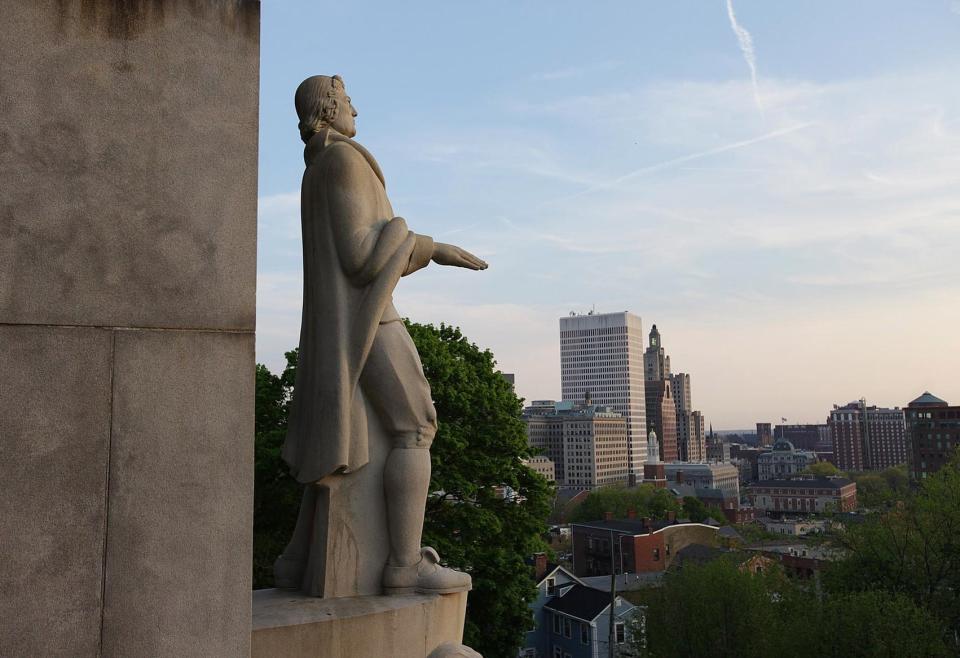(This story was updated because an earlier version included an inaccurate headline.)
As Rhode Island’s capital, Providence is well-known as the state’s hub for food, arts and entertainment, but it’s also the state’s oldest town.
Providence was founded by Roger Williams in 1636, making it nearly 400 years old. According to the National Parks Service website, Williams and a group of companions first settled near a freshwater spring in what is now the College Hill area of the city.
Upon finding the spring, Williams negotiated with Narragansett chiefs Canonicus and Miantonomi, who agreed to give him the land that would become Providence in exchange for English trade goods. King Charles II of England granted Williams a charter for the colony in 1663.
Since that founding day in 1636, Providence played an important role in the country’s early history. The city was a hub for trading in the 1700s, home to many early revolutionary efforts and, as the country progressed into the Industrial Revolution, a leader in manufacturing products like thread, jewelry and machinery.
Providence was officially incorporated as a city in 1831 and became Rhode Island’s sole capital in 1900.
Food history: Want to eat like old-time Rhode Islanders? Here’s the best (and worst) ‘Swamp Yankee’ foods
Who was Roger Williams?

The founder of Providence, and Rhode Island as a whole, did not have an easy road getting there.
Williams originally arrived in Boston in 1631, but moved to Plymouth over religious disagreements with the Puritans there. Not agreeing with the Pilgrims either, Williams became a preacher in Salem, but was eventually banned from Massachusetts Bay Colony as a whole for his religious beliefs.
Feeling old? 5 of the oldest places in Rhode Island you can still see today
Originally fleeing from Salem on foot, Williams and his few fellow dissenters eventually had to cross the Seekonk River to exit Massachusetts. Just as Williams was about to give up hope, he encountered people of the Narragansett tribe on Slate Rock. They directed Williams up the river to the plentiful Great Salt Cove, the emptying bay of the freshwater spring where Williams landed.
Williams named the city Providence for the sense of religious guidance he felt on the journey, and it quickly became a hub for religious freedom.
Today, Providence remembers its founder in many ways you can visit throughout the city and its surrounding area. Slate Rock Park has a monument commemorating the moment of fellowship between Williams and the Narragansett tribe, and the Roger Williams National Memorial has a statue of Williams in his original landing place, which is now Prospect Terrace Park. Roger Williams also has the honor of both a university and a zoo named after him.
This article originally appeared on The Patriot Ledger: The history of Rhode Island’s oldest town Providence
